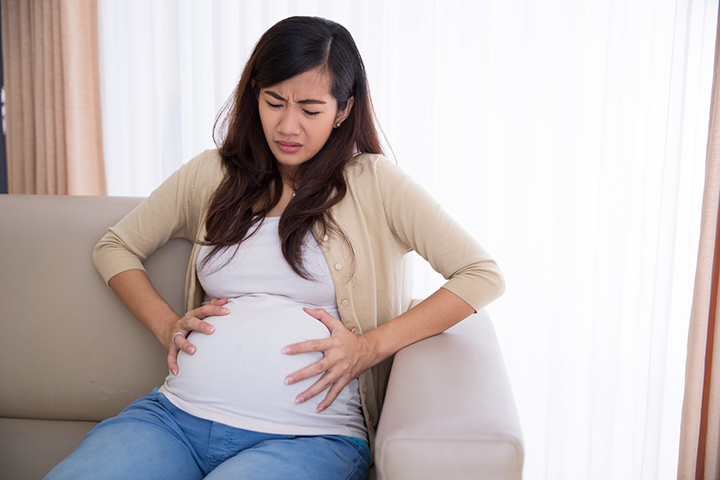
Pregnancy period is one time when you are going to have several doubts regarding your baby and your body. Reading about pregnancy or talking out things with your mum or your friends might not just work sometimes. If you are in doubt on when to contact your doctor, then you have come to the right place. We are here to give you the answer to that lingering question in your mind.
You might have a few symptoms which for which you weren’t able to find a solution, and it is best to ‘talk your thoughts’ to your healthcare provider rather than telling it to anyone else.
It is always best to set up a protocol for emergencies with your health care provider as early as possible. When you do that, you will be able to understand (in detail) about those symptoms that need immediate medical attention and those which do not. All those symptoms which show a red flag should be discussed with your doctor as soon as possible.
Here, in this article, you will find some guidelines, which will help you differentiate the difference between the various symptoms and also on how to handle those when you experience it.
Bleeding and Spotting
Heavy bleeding or excessive pain in the lower abdomen or bleeding with cramps is one symptom that you should not neglect. You should talk to your doctor if you experience severe lower abdominal pain (especially in the centre or sometimes on both sides), that doesn’t subside, even if it isn’t followed by bleeding. Moreover, f you find that you have bleeding along with it, accompanied by pain, fever or chills, then, you need to pick up your phone and dial your doctor immediately.
One of the common symptoms during pregnancy is a headache. It can be caused by hormones, variations in the posture or even caffeine withdrawal. But, you cannot completely neglect these headaches because at times these headaches could be a sign of a serious complication such as preeclampsia, in which severely high blood pressure puts mum and baby at risk. Those pregnant women, who had high BP (Blood Pressure) apart from a headache, were 17 times more expected to have preeclampsia than those women who didn’t have elevated blood pressure. If your doctor is kept updated about this, then he/she will be able to decide when to raise the red flag. Therefore, it is always best to contact your doctor when you have a headache.

Do you have pain or a burning sensation while urinating? Or perhaps frequent urination, cloudy, foul-smelling, or bloody urine? These are some of the symptoms that you need to take into account and call the doctor when you find them. Pregnant women are most of the time prone to lower urinary tract infections and hence all these symptoms might be a sign of infection. If they are left untreated, they can even spread upward to the kidneys, which can pose a severe risk to you and your baby. Nearly 2 percent of pregnant women get these kidney infections, which is known as pyelonephritis, during the late second or early third trimester. Chills, nausea, back pain, fever, painful urination, blood in the urine and vomiting are some of the symptoms.

It is quite normal for your organs to shift constantly during your pregnancy since your uterus is expanding and ligaments are stretching. This might, in turn, cause abdominal pain. However, not all abdominal pains are normal. It can be much more serious than you can think. If you find that the pain is severe and tenacious, then it can be a symptom that you should take care of. Make sure you call your doctor if drinking water, taking rest or stretching does not reduce the pain.

It is not normal to have fever or chills while you are pregnant. And if you do, then this is one time that you need to call your doctor, since it is completely unrelated to your pregnancy. During your first trimester, nausea and vomiting are two symptoms that are quite normal. However, when it comes to fever and chills (especially when it makes you feel dehydrated), don’t take it light. It is indeed something to get worried about.

If you tend to get a fever greater than 101 degrees Fahrenheit or 38 degrees Celsius during your pregnancy, pick up your phone and speak to your healthcare provider. The fever could (sometimes) be a symptom of infection, which could even affect your little one. If a pregnant women’s body temperature advances from 98.6 degrees to a fever, then it could interrupt the development of the baby. Therefore, you need to seek treatment as soon as possible. There are some studies which show that a fever which causes infection could drive to congenital defects.

If your vaginal discharge changes in appearance, such as having an unpleasant and fishy smell, white or grey and watery, frothy, yellow or green thick and curd-like then it may demand treatment. If you have crossed 38th week of your pregnancy, then a discharge could indicate that your bag of waters has broken; which means that you need to go to the hospital right away. However, if you feel a rush of liquid before your 37th week of pregnancy, then it could be a sign of preterm later. This means that you need to call your doctor immediately.
A specific amount of oedema is typical in the ankles and feet during the pregnancy, and you may also have some moderate swelling in your hands too. However, if you find puffiness around your eyes or swelling of your face and hands, then it is something you should notify your doctor. Excessive swelling in the feet or ankles should not be neglected too. It could sometimes be a symptom of preeclampsia.
Make sure that you keep checking in with your growing little one a few times a day by watching for ten movements within 10 minutes. If at all you don’t feel any movement while at a count, then try drinking a glass of fruit juice after which you can lie on your left side in a quiet room for around half an hour. If even after the second try, you don’t find any movements, or if two hours pass without ten movements, then make sure to ring your doctor.

It is the most powerful creation to have life growing inside of you.There is no bigger gift